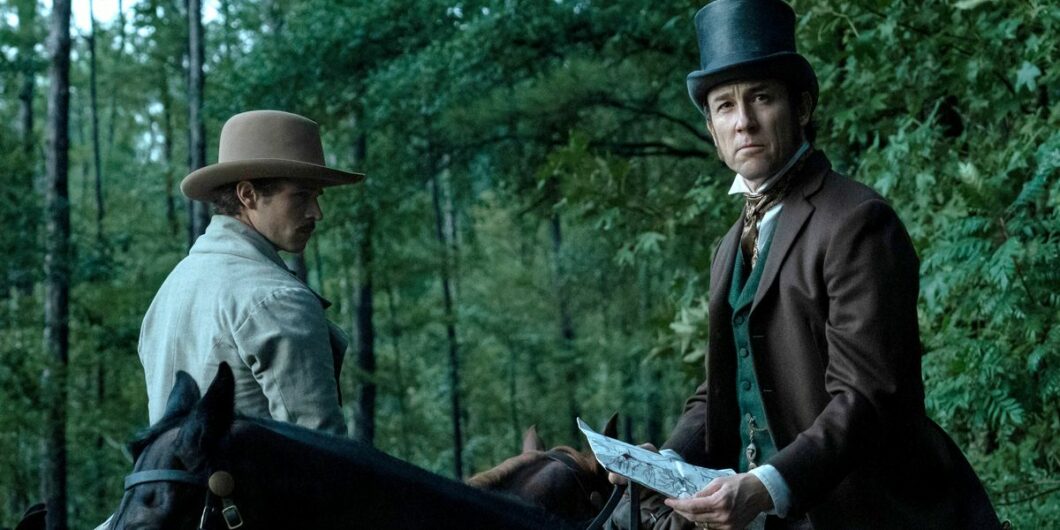A Flattened Lincoln
Last month I was at a book launch in Washington, DC. This was an event for Republicans—sparsely attended. Older gentlemen and ladies who may have been notable once were obviously struggling with anonymity, looking for people they themselves might know without looking too eager to everyone else. Of course, there were almost no young people except the waiting staff. I knew maybe five people there and wondered what they were doing there; and vice versa. This was a cultural event, so that adds to the embarrassment in the most transactional city in America. What else to do but network halfheartedly and get a drink?
The author signed some copies of his new historical thriller and gave a mercifully brief speech that was friendly and somewhat ironical. He was aware of the staid atmosphere, which perhaps can be attributed to recent Republican defeats, but not oppressed by it. He was slightly eccentric, but seemed copasetic, so he was one up on the rest of us. He was introduced by Joe Crowley, whose only claim to your attention is that he was defeated and replaced by the rising star of Progressive politics, Rep. Alexandria Ocasio-Cortez. Crowley used to be the Chair of the House Democratic Caucus, spent 20 years in Congress, and is now a lobbyist—what else? It might even be a promotion and, anyway, having a career in DC is a life sentence, if you’re lucky. Crowley was very friendly, won over the crowd with some remarks about bipartisanship, and reminded me of the qualities that get politicians elected.
I mention all this because the author is James Swanson, a think tank professional who spanned the gamut from the Cato Institute to Heritage. Swanson has specialized in a kind of historical fiction and reporting on assassinations, mostly on Lincoln (he sat on the Lincoln Bicentennial Commission and the advisory council of Ford’s Theatre Society), but also on JFK and MLK. Swanson had screens at his new book launch, playing clips of the new AppleTV+ series Manhunt: The 12-Day Chase for Lincoln’s Killer, based on his 2007 New York Times Bestseller book.
Lincoln as a Victim on 24
Manhunt is an odd series for any number of reasons. It plays like a police procedural, with Secretary of War Edwin Stanton playing tough cop rushing to catch John Wilkes Booth, and the suggestion that the fate of the nation may be on the line. It’s April 14, 1865: Lincoln is about to get shot and it’s been only four days since the Civil War ended with the surrender at Appomattox. Stanton is played by Tobias Menzies as a virile mix of Jack Bauer in 24 and Bogart in a noir. The moment they shaved Stanton’s patriarchal beard, they also took away his political dignity. He’s now hardboiled and he has dreams about the dead Lincoln that psychoanalyze him.
There’s blood and brutality, there’s plenty of sordid stuff to make for “gritty realism,” including cruelty to former slaves, and then there’s a somewhat clownish Lincoln. Hamish Linklater plays him as a short guy, which must be an error of filming, since his IMDb assures us he’s as tall as Lincoln at 6 foot 4 inches. He does not tower; nor does he slump; he jokes all the time, such as before the State Department receives the cable confirming the surrender, and he laughs heartily at the farce he attended the night he got shot, Our American Cousin. The portrayal is very sentimental, lacks any dignity, and makes you wonder what the big deal is that this guy is dead.
Obviously, everyone knows Lincoln and believes he is important, so does art need to reestablish that in every new story? I think so—that’s why it’s art, which depends on the enterprise of the emotional power to draw us into the story by characterization and helping us see with fresh eyes. Moreover, the Lincoln assassination is something people hear of in class or read about in a history book, but there is no attempt to come within shouting distance of the experience, which is, again, the whole province of art.
There’s a moment early in the series that recalls Jesus driving the merchants from the temple. Stanton sees a conman selling Lincoln death masks in the street, along with other paraphernalia of the assassination, within a day of his death. Stanton demands of the man, have you no shame? He scatters the merchant and curious would-be buyers alike and orders men to keep the place clean of such impiety. I got the feeling, watching Manhunt, that the series is itself one of these acts of impiety that appeal to a curiosity that should not be illegal, but should be deplored.
Manhunt is the kind of video entertainment they play for tourists in such national monuments, more to reassure us of American triumph than to teach America’s great conflicts.
And this is before we get to the defects of screenwriting. The dialogue is oddly modern, robbing the era of its true character and the actors of some of their dignity. Then, too, they peppered in the favorite political phrases of latter-day liberals, such as the Obama-era “if you see something, say something” and the Biden-era “protect our democracy.” You don’t have to be pious to write well for the era: Deadwood, the major revisionist Western of this generation, succeeded with brio. I think Spielberg’s Lincoln was itself not free of slavish flattery to Progressive liberals, but it was at least not this caricatural. Manhunt leans in that direction, too. After the surrender, Lincoln is shown to prefer a Reconstruction starting with immediate aid to the freed people, i.e. welfare. The Democrats are the true Republicans in this vision!
Maybe the best way to understand this flavor of storytelling is to look at the character of Mary Todd Lincoln, who was somewhat crazy even before being widowed. She’s exactly what our storytelling prefers: bitter, biting, given to nasty remarks, uninterested in or even unacquainted with self-restraint, indeed, of the type that seems to identify truth with ugliness. This seems about right for the character, but it’s the exact opposite of the standard of behavior and morality people proclaimed at that time and at least partially achieved. Yet this is what passes for honesty and authenticity in entertainment now, indeed it is proffered for reasons of activism and therapy, politicizing feminine pathologies.
Manhunt is a mix of the old patriotism we can glimpse even in the costumes, the bearing, and the proprieties of speech and behavior of the men of that time and this new criticism of those men’s failures or shortcomings, especially their virtues. As history, that’s called revisionism; as entertainment, it is ubiquitous rather than overpowering, perhaps because revisionism is now taken for granted, it is the very atmosphere of our public education, not just a private preference. However, the result, artistically, is catastrophic because it completely conceals Lincoln’s own criticism of the America he served and for which he suffered, under the rubric of “popular sovereignty,” the slogan and doctrine of his main political adversary, Stephen Douglas. Lincoln shows up to succeed and die, leaving Reconstruction to fail without him. He does get one scene with Stanton, preparing the Second Inaugural, to talk about the character of the political crisis and the difficulty of telling the truth about slavery. But the difficulty then, as now, is understanding the meaning of freedom! I would go so far as to say that the moral and aesthetic preferences of our entertainment, of which Manhunt is a serviceable, if not particularly polished example, are themselves the consummation of that doctrine of popular sovereignty that elevates willfulness and whim over principle, flattery over public duty. Thus freedom is corrupted while we are flattered that we are more sophisticated than our forerunners.
The Business of The National Memory
If you go around DC, one thing you get used to pretty quickly is groups of kids on school trips to visit Ford’s Theatre, which is pretty close to the White House and the National Mall. It’s strange when you think about it. A man was assassinated there, something rather too serious for school kids. We tend to protect our young from anything that might scare them. Then again, entertainment these days is often far more sordid than we could honestly approve.
Manhunt is the kind of video entertainment they play for tourists in such national monuments, more to reassure us of American triumph than to teach America’s great conflicts. It would be bad taste to disapprove strongly of something people like, but it’s just as hard to tell whether they really like it. Are our public monuments well run, good custodians of the national memory, and therefore memorable experiences for our fellow citizens? Maybe that’s asking too much. We tend to settle for entertainment and a modicum of patriotism, something family-friendly. We want to believe that any reading or any entertainment about our history is to the good, because we’re aware of how little our public institutions and our children care or know, even when it comes to Lincoln, who’s somehow responsible for who we are and how we live.
I don’t doubt the good intentions, but I think we should be honest about our failings. Preceding generations of Americans, at least until the mid-century, did more. They built the noble Greek temples which were justly considered the fitting resting places of the great men of our history, the Jefferson Memorial being the last of them. That was FDR’s achievement, dedicated in 1943, on the bicentennial anniversary of the great man who authored the Declaration of Independence, the Virginia Statute for Religious Freedom, and fathered the University of Virginia. That’s why we go to DC, after all. I have seen people weep at the Lincoln Memorial. We should look to art to achieve at least that much.


